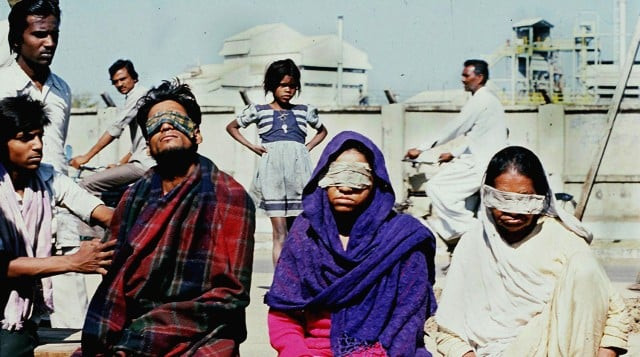25 years for justice – even more for a clean-up

On Monday, seven managers from the local subsidiary of US chemical group Union Carbide were sentenced to two years in prison for criminal negligence in the first convictions in the case. They will appeal and were released on bail.
The sentences, perceived as too lenient by rights groups and survivors, have shed a spotlight on simmering grievances at the way the disaster was handled by the company and authorities.
Campaign groups, environmental groups and scientists have warned that local authorities have never adequately sanitised the site, meaning toxins continue to cause illnesses and birth defects among residents.
“Nobody wants to clear the poison that is lying in the yard and all our protests demanding safe disposal have failed,” said Satinath Sarangi, a member of a voluntary medical organisation, Sambhavna, in Bhopal.
The disaster began on December 3, 1984, when the pesticide plant accidentally released about 40 tonnes of toxic gas into surrounding residential areas.
According to the government, 3,500 lives were lost in the immediate aftermath but activists and rights groups calculate that 25,000 people died in the years that followed.
A year after the gas leak, local authorities collected 350 tons of waste and left it in the factory yard, ignoring all safe waste management practices. In the past two decades, several studies have concluded that the material containing toxins and heavy metals has leeched into the ground, contaminating groundwater – the only source of drinking water for 20,000 people nearby.
The local government in Madhya Pradesh, of which Bhopal is the capital, acknowledges the waste is still there.
“For years the matter was in the court and we could not clean the Union Carbide premises, but now we have a green signal to dispose of it,” R K Jain, a senior member of the Madhya Pradesh Pollution Control Board, told AFP.
For some the government is to blame for dragging its feet on the waste disposal, despite a ticking public health time-bomb. Others see Union Carbide as shirking its responsibility to clean up after itself.
“It is the failure of the Indian government for not being able to get Union Carbide to do the clean up,” says Abhishek Pratap, a campaigner at Greenpeace. In the meantime, at least 100,000 people living near the factory suffer from chronic illnesses, according to government figures.
“The waste has killed more people than the total number of people killed on the incident night,” said Savitri Mahe, who lost her 16-year-old daughter to the leak. “I drink the toxic chemicals that killed my daughter.”
Published in the Express Tribune, June 10th, 2010.





1725099588-0/BeFunky-(41)1725099588-0-208x130.webp)













COMMENTS
Comments are moderated and generally will be posted if they are on-topic and not abusive.
For more information, please see our Comments FAQ